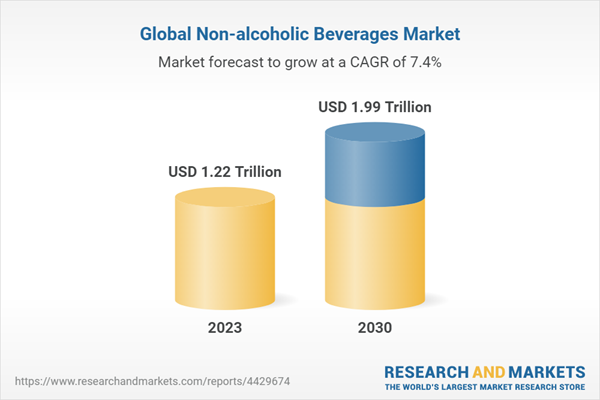Consumers increasingly seek alternatives to sugary sodas and high-calorie beverages, driven by concerns about obesity, diabetes, and other health issues. Non-alcoholic drinks that promote natural ingredients, low or no sugar content, and functional additives such as vitamins, antioxidants, and probiotics are gaining popularity. Companies in the market respond to this demand by innovating and introducing a diverse range of healthier beverage options, including herbal teas, infused water, natural fruit juices, and functional drinks.
The rise of alternative and plant-based ingredients is contributing to the growth of this market. Plant-based beverages, such as almond milk, soy milk, and other dairy alternatives, have gained traction as consumers explore options that align with their dietary preferences, including vegan and lactose-free choices. Health considerations and environmental and ethical concerns drive this shift toward plant-based and alternative ingredients.
The retail stores have become integral to the global economy in recent years. These stores have a competitive advantage in terms of proximity to customers and, in most cases, an extremely loyal customer base. Retail sales growth has thus become a major factor in the growth of the market.
For instance, in 2022, Koios Beverage Corporation, a beverage manufacturer, partnered with McLane Co., a company that buys, sells, and delivers more than 50,000 consumer products to nearly 110,000 locations across the U.S. This helped the former to grow its distribution network for its Fit Soda line (organic, natural soda) in convenience stores and gas stations in the U.S. Furthermore, the company is expanding its footprint in many new markets and regions.
Non-alcoholic Beverages Market Report Highlights
- Based on product, the carbonated soft drinks segment dominated the market in 2023. As consumers seek less sugar in beverages, several manufacturers are diversifying their product offerings by providing zero and low-calorie products to prompt growth within this category
- Based on distribution channel, the retail segment is expected to grow at the fastest CAGR from 2024 to 2030. Several brands are launching innovative products such as mock tails, artisanal sodas, and other non-alcoholic products through retail channels such as supermarkets, convenience, and department stores. These retail channels offer various options to accommodate different tastes and preferences. Moreover, retailers usually dedicate shelf space for non-alcoholic beverages, further increasing their visibility and potential for sales
- Asia-Pacific dominated the overall non-alcoholic beverages industry in 2023. Asia-Pacific, particularly in emerging countries, has created a strong demand for non-alcoholic beverages, including energy drinks and fortified juices. The growing awareness of the need for an active lifestyle, given the prevalence of lifestyle diseases, has encouraged consumers to opt for healthy and sugar-free drinks
Table of Contents
Companies Mentioned
- Nestlé
- PepsiCo
- Unilever
- Keurig Dr. Pepper Inc.
- The Coca-Cola Company
- Jones Soda Co.
- Danone S.A.
- Suntory Beverage & Food Ltd.
- Asahi Group Holdings, Ltd.
- Red Bull
Table Information
| Report Attribute | Details |
|---|---|
| No. of Pages | 80 |
| Published | January 2024 |
| Forecast Period | 2023 - 2030 |
| Estimated Market Value ( USD | $ 1.22 Trillion |
| Forecasted Market Value ( USD | $ 1.99 Trillion |
| Compound Annual Growth Rate | 7.4% |
| Regions Covered | Global |
| No. of Companies Mentioned | 10 |









